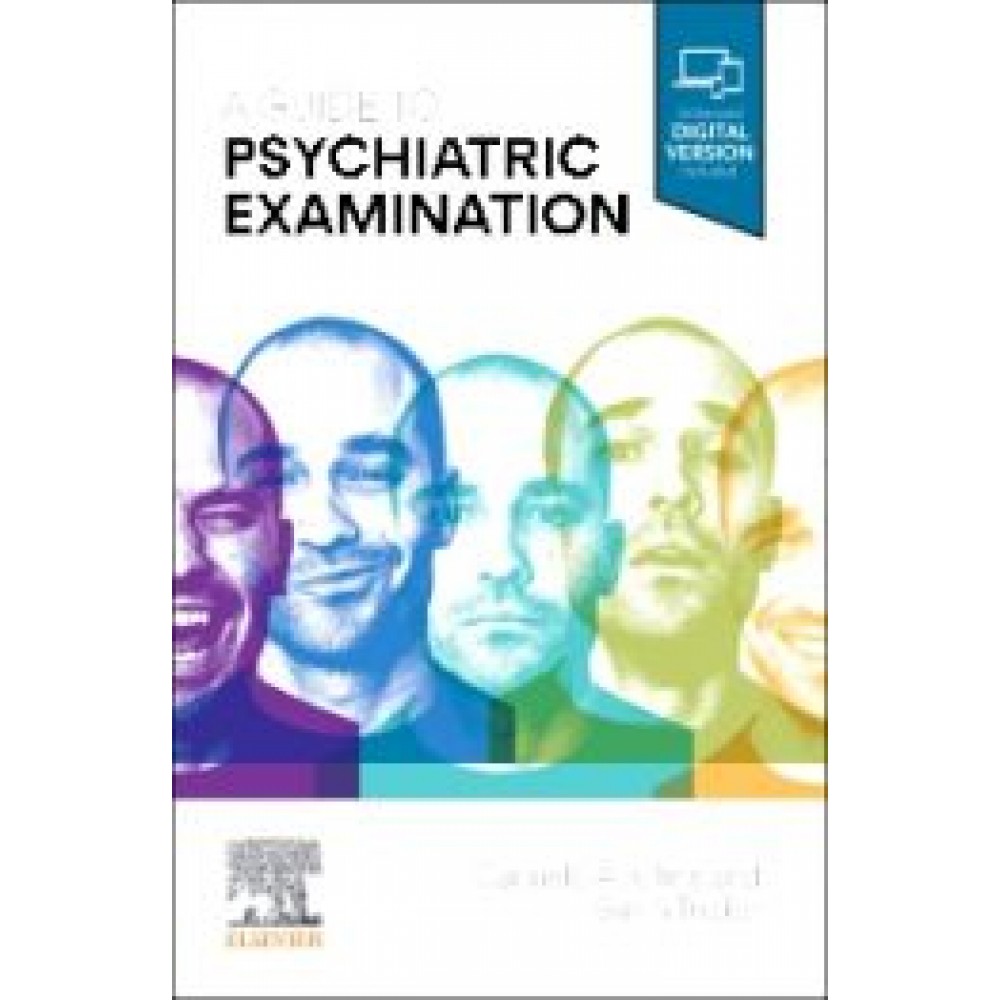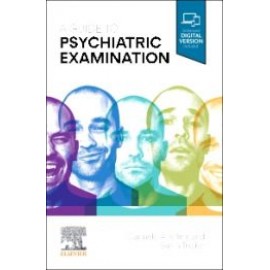A Guide to Psychiatric Examination
Descripcion del producto
| ISBN Number | 9780729543972 |
| Main Author | Edited by Carmelo Aquilina, MD, FRCPsych, FRANZCP and Gavin Tucker, MB BCh BAO, MSc |
| Copyright Year | 2021 |
| Edition Number | 1 |
| Format | Book |
| Trim | 190 x 125mm |
| Imprint | Elsevier |
| Page Count | 842 |
| Publication Date | 6 Jul 2021 |
| Stock Status | NOT YET PUBLISHED Expected Release Date: 2021-07-06 |
Book Description
"Nothing provides a better foundation for good mental healthcare than access to a range of excellent supervisors and role models. This text is liking having a supervisor in your pocket"
Roderick McKay, Past Binational Chair, RANZCP Faculty of Psychiatry of Old Age and Adjunct Senior Lecturer, University of New South Wales, Australia
This guide is for anyone working with people with mental health conditions, covering the techniques needed for a good psychiatric interview and preparing readers to work with specific groups, presentations, and in different settings. It covers everything from the basics of psychiatric assessment through to in-depth topics and how to approach examinations.
This jargon free guide is a practical handbook that can be read quickly and consulted as needed to build confidence. It is ideal for medical students, psychiatric trainees, nurses, and allied health professionals.
Key Features
- Practical guidance on writing reports and communicating your findings effectively
- Starts from first principles to give a sound foundation for all psychiatric interviews
- Covers all mental health conditions with both DSM-V and ICD-11 classifications
- Key topics such as risk assessments, managing difficult encounters, home visits, practising safely
- Insights into how it feels to be interviewed written by a patient
- Includes an Enhanced eBook version with purchase. The enhanced eBook allows the end user to access all of the text, figures, and references from the book on a variety of devices.
Author Information
Book Contents
Chapter 1.Being interviewed: the psychiatric assessment as a co-constructed relationship
Section 1:The basics
Chapter 2.Information gathering
Chapter 3.Becoming a skilled interviewer
Section 2:The diagnostic psychiatric interview
Chapter 4.Preparing for the interview
Chapter 5.The diagnostic interview
Chapter 6.The mental state examination
Chapter 7.Bringing it all together
Chapter 8.Recording and communicating your assessment to others
Section 3:Specific presentations
Chapter 9.Depression
Chapter 10.The suicidal person
Chapter 11.Mania
Chapter 12.Psychosis
Chapter 13.Anxiety
Chapter 14.Obsessive?compulsive symptoms
Chapter 15.Post-traumatic stress disorder
Chapter 16.Confusion part 1: delirium
Chapter 17.Confusion part 2: dementia
Chapter 18.Substance use and addiction behaviours
Chapter 19.The person with feeding and eating disorders
Chapter 20.Borderline personality disorder
Chapter 21. Pregnancy and the postnatal period
Chapter 22.The unresponsive person
Chapter 23.Dealing with a potentially violent person
Chapter 24.Neurodevelopmental disorders
Section 4:Specific places
Chapter 25.Assessments in the accident and emergency department
Chapter 26.Assessments in the home
Chapter 27.Assessments in the general hospital (or CL unplugged)
Section 5:Specific groups
Chapter 28.The assessment of children and adolescents
Chapter 29.Assessment of older people
Chapter 30.Assessment of people with intellectual disabilities
Chapter 31.Assessment of people from different ethnic, cultural, and linguistic backgrounds
Section 6:In-depth topics
Chapter 32.Personality difficulties
Chapter 33.The extended cognitive assessment
Chapter 34.Assessment of mental capacity
Chapter 35.Risk and risk assessment
Chapter 36.Assessment of physical health
Chapter 37.Changed behaviours in people with dementia
Chapter 38.Difficult encounters
Section 7:Approaching examinations
Chapter 39.Examination skills
Appendices
Appendix 1.History-taking checklist
Appendix 2.Mental state examination checklist
Appendix 3.Suicide assessment checklist
Appendix 4.Risk review checklist
Appendix 5.Categorical classification of personality disorders
Appendix 6.NEAMI health prompt
Appendix 7.Montreal Cognitive Assessment (MoCA)
Publishing history
Index



